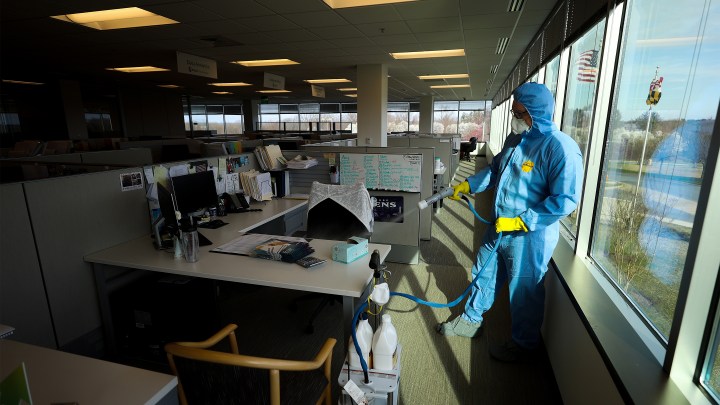
Reopening could mean redesigning schedules as well as floor plans
Reopening could mean redesigning schedules as well as floor plans

As businesses start to think about reopening, it’s becoming clear that work as we knew it is going to look a lot different: more empty space between people, more dividers and fewer shared touch points like door handles and elevator buttons. But it’s not just work spaces that might need to be redesigned. It’s work schedules too.
Think about the typical open office — those long tables crammed with workers practically on top of one another. Simply adding some plexiglass and masks is not going cut it. Many workplaces will need to find ways to reduce the number of workers in one place at one time.
“I do think the one-size-fits-all 9-to-5 is probably gone,” said Cali Williams Yost, a business consultant specializing in flexible work.
She said companies could stagger starting times or have fewer, longer shifts, perhaps on alternate days. “So you split people up. ‘A’ teams come in on certain days, and ‘B’ teams come in on certain days, and never do they overlap.”
The sudden shift to remote work has already forced many companies to become more flexible, so blowing up the schedule is just the natural next step, said Alex Pang, author of the book, “Shorter: Work Better, Smarter, and Less —Here’s How.”
“This opens up a recognition that there are changes in the way that we work that maybe are closer to hand, are more accessible than we thought before,” he said, like working fewer hours altogether.
Pang said a four-day workweek with employees taking different days of the week off could help solve the short-term issue of staggering shifts. Research has found it can benefit business too.
“You can actually be just as productive or more productive. People are happier, work-life balance is better and recruitment and retention go way up,” he said.
Philadelphia software company Wildbit has been working a four-day week for years.
“The hypothesis was that we are spending a lot of our days on things that aren’t really valuable — just meetings, procrastination, inefficiencies, things like that,” said CEO Natalie Nagele.
She found productivity improved after the first year, with employees able to do better, more focused work when there was less of it.
With many schools closed, persistent uncertainty about child care and companies still figuring out how to retrofit their physical space, shorter workweeks and flexible schedules could become less of a perk and more of a necessity.
There’s a lot happening in the world. Through it all, Marketplace is here for you.
You rely on Marketplace to break down the world’s events and tell you how it affects you in a fact-based, approachable way. We rely on your financial support to keep making that possible.
Your donation today powers the independent journalism that you rely on. For just $5/month, you can help sustain Marketplace so we can keep reporting on the things that matter to you.


















